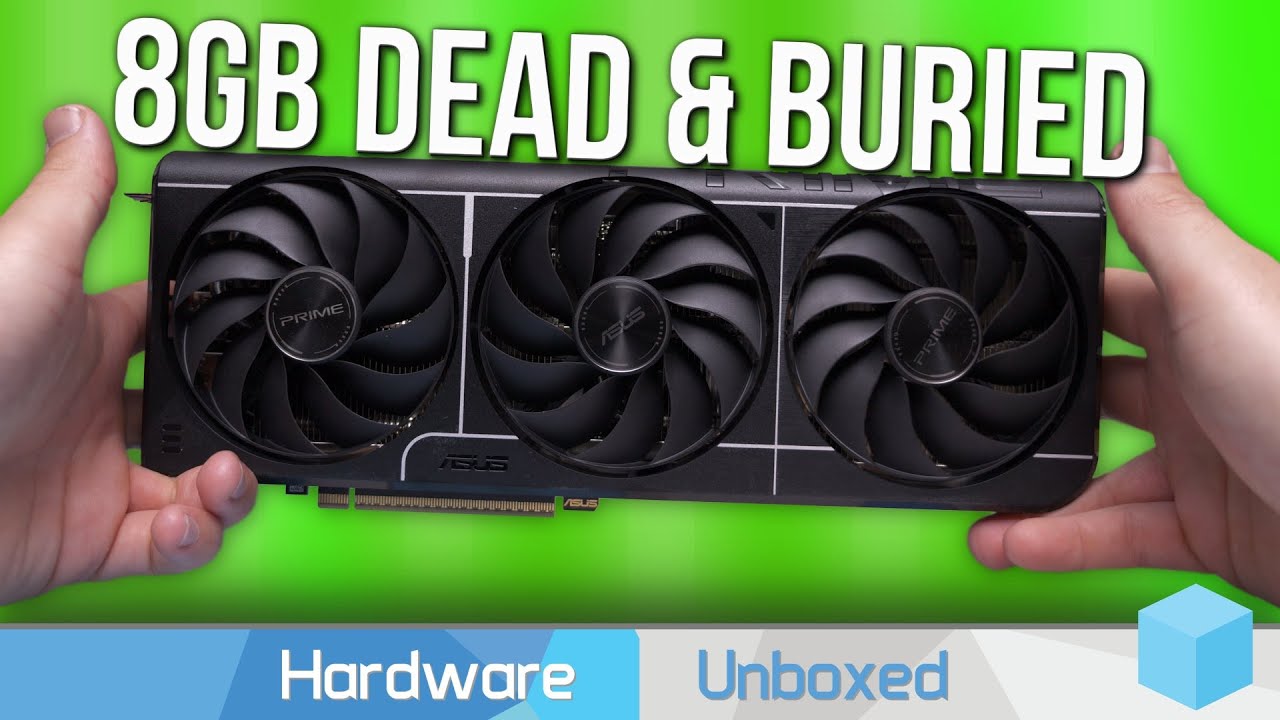The video critiques Nvidia’s RTX 5060 Ti 8 GB model, highlighting its performance issues and potential obsolescence compared to the 16 GB variant, which offers significantly better gameplay experiences. The presenter warns that the 8 GB version could mislead consumers due to its marketing, urging gamers to prioritize VRAM capacity when purchasing graphics cards to avoid frustration.
In the video, the presenter discusses the recently released Nvidia RTX 5060 Ti, available in both 8 GB and 16 GB configurations. He highlights the controversy surrounding the delayed reviews for the 8 GB model, which were intentionally held back by Nvidia to obscure its performance issues. The presenter notes that the 8 GB version is being marketed alongside the 16 GB variant, despite significant differences in performance due to the limited VRAM. He expresses concern that many consumers may inadvertently purchase the inferior 8 GB model, mistaking it for a comparable product.
The video goes on to detail the performance benchmarks of the 8 GB and 16 GB models across various games, revealing significant disparities in performance. The presenter uses examples from games like “The Last of Us Part Two,” “Final Fantasy 14,” and “Cyberpunk 2077” to illustrate how the 8 GB model struggles, particularly in scenarios demanding higher VRAM. In contrast, the 16 GB model consistently outperforms the 8 GB version, providing smoother gameplay and better frame rates. The presenter emphasizes that the 8 GB model is likely to become obsolete quickly, especially as game requirements continue to evolve.
The presenter argues that 8 GB of VRAM is insufficient for a graphics card in 2025, suggesting that the minimum VRAM capacity should be at least 12 GB for mid-range products and 16 GB for higher-end models. He points out that the 8 GB RTX 5060 Ti is a poor investment, as it will likely lead to a frustrating gaming experience, requiring users to frequently adjust settings to accommodate the limited memory. The video underscores the notion that Nvidia’s strategy appears to be one of planned obsolescence, ensuring that customers will need to upgrade sooner than expected.
Throughout the testing, the presenter highlights specific instances where the 8 GB model fails to deliver acceptable performance, citing issues like frame rate drops and texture pop-ins. He notes that in many cases, the 16 GB model is not only faster but also renders games more accurately, enhancing the overall visual experience. The disparity in performance is stark, with the 16 GB model often achieving significantly higher frame rates and smoother gameplay, which is crucial for a satisfying gaming experience.
In conclusion, the presenter criticizes Nvidia for releasing the 8 GB RTX 5060 Ti, calling it a “trap” for gamers. He believes that the lack of distinction between the two models could mislead consumers and contribute to a frustrating gaming experience. The video wraps up with a call for better transparency from Nvidia and a hope that future products, including those from competitors like AMD, will avoid similar pitfalls. The presenter encourages viewers to consider the implications of VRAM capacity when purchasing new graphics cards, stressing that 16 GB should be the standard moving forward.
